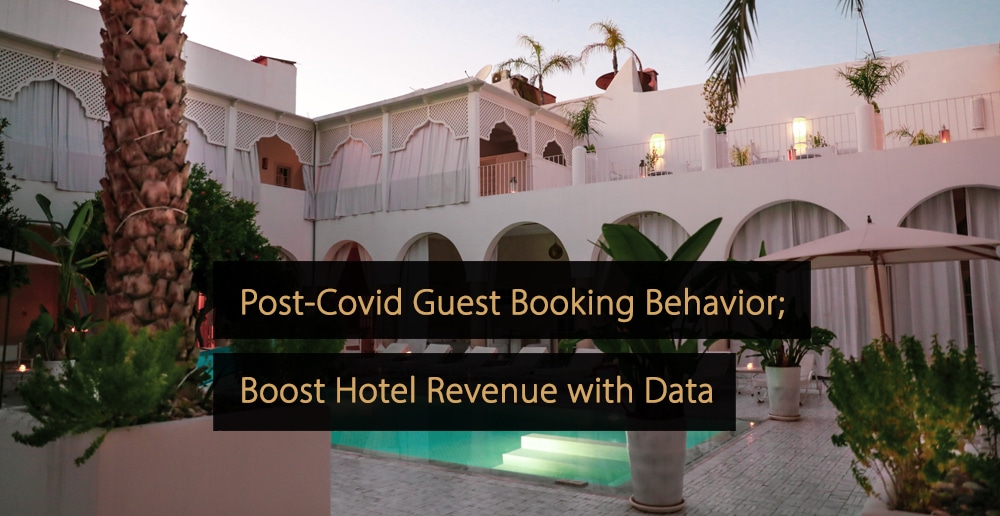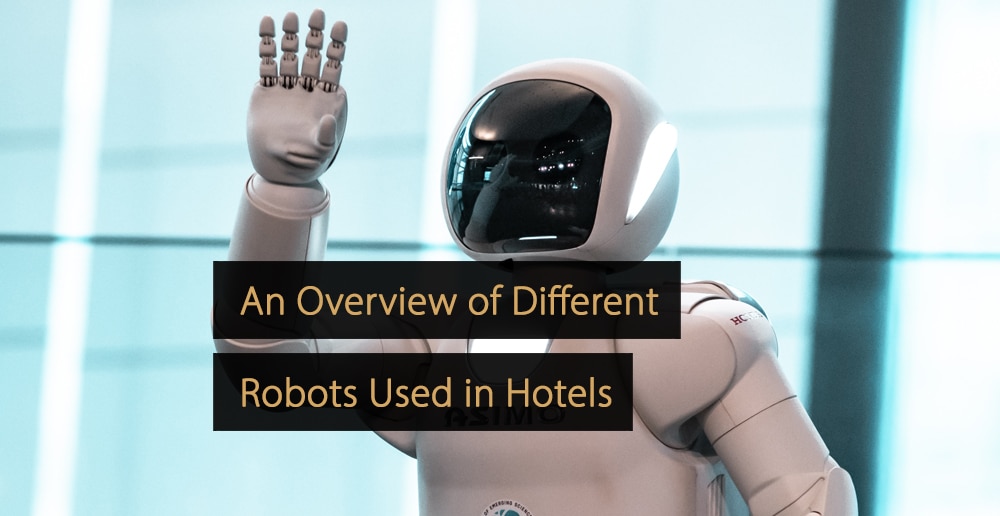The most challenging period the global hospitality industry has faced to date is finally over in most regions. Lockdowns and travel restrictions are largely a thing of the past, and people are comfortable traveling again. But guest booking behavior has shifted. In this article, you’ll learn about 4 data-driven insights that help you to boost your hotel revenue.
Times are Changing, and so is Your Guest Booking Behaviour
But while recovery is in full swing in many markets, things aren’t returning to how they were. Much has changed because of the pandemic. Guest booking behavior has shifted, and previously well-established travel patterns have been replaced by new, unfamiliar ones. At first, this sounds like a massive new challenge. But if you manage to predict and monitor these changes, you can be ready and make the most of them at your hotel.
4 Current Trends in Guest Behavior
Below you will find four post-covid guest booking behavior changes.
1. Shifting Seasonal Trends
Many markets used to run on reliable seasons of high and low demand. But what was once predictable is now much more variable.
Today, many guests are increasingly willing to travel during off-peak times. That includes periods before or after traditional high seasons and historically low-demand midweek days. The Vrbo Trend Report 2022 reveals that the popular apartment rental platform registered a 33% year-on-year increase in updated searches. This shows people have become more flexible regarding their trip’s timing. Marriott spokesperson Benjamin Gerow sees this at his group’s properties as well. During an earning call, he shared that shoulder days of Thursday and Sunday had already rebounded to just below 2019 levels.
This creates opportunities for your hotel to boost occupancy and revenue during previously slow periods. Use value-packed deals or preferential rates for shoulder days and pre- or post-season periods to attract today’s more flexible travelers.
2. Extended Stays and Remote Working are Here to Stay
The idea of remote work or bleisure travel isn’t new, but the pandemic helped it go mainstream. Expedia’s 2022 Travel Trends Report saw 56% of respondents saying they want to take a bleisure trip soon.
Vrbo’s 2022 trend report echoes this, having found that 44% of families said they were more likely to work remotely in the future. The platform also reports a 68% demand increase for 21- to 30-day stays. This shows that extended stays are likely to remain popular.
All this is good news for hotels with co-working facilities, services, and packages that cater to remote workers. Think about how your property could attract this new guest segment to take full advantage of this lasting trend.
3. Travelers Want to Go Big
Now that long-haul trips are finally possible, travelers are ready to splurge on the trip of a lifetime. For many, it is time to make up for experiences they feel they missed out on.
According to research by Accor, 80% of UK residents want to travel in 2022 and are planning to spend 39% more on it than in 2019. It’s the same in the United States. Data shows that 68% of Americans want to take a major trip to destinations in Europe and Asia this year. The situation is similar in other major source markets.
This allows you to raise your ADR and drive direct bookings with value-packed offers exclusive to your hotel website.
4. An Increased Demand for Digitalization & Personalization
As technology becomes more present in people’s lives, this creates digital customer expectations, which puts a certain pressure on hotels. For example, guests continue to demand a higher level of digitalization and quick replies regardless of which channel they use to request information.
Guests also look for a certain level of personalization before rating service as good. They want to feel unique and have a valuable experience. This can create a challenge for hotels as many are understaffed, and personalizing services demands an increased effort.
How to Leverage Technology to Benefit from These Trends
Below you will find tips on how to use technology to benefit from post-covid ternds.
- Understand where demand comes from: first, explore which source markets are searching for your destination. This may be different from pre-pandemic times, so do your research. A tool like Atomize’s demand index reveals booking intent before the reservations start and allow you to react in time. For example, you can geo-target promising markets with relevant ads and adjust your pricing to reflect higher demand levels.
- Avoid discounting: demand is there, and so is the willingness to pay. In most cases, discounts would mean leaving money on the table. If unsure, use an automated RMS that considers all essential factors. That way, you’ll offer the optimal rate at all times, even if demand patterns are significantly different from before.
- Try new, flexible pricing techniques: a modern RMS can allow you to create more fluid and even independent pricing hierarchies for your room types. Set minimum and maximum rates for dates you know will show exceptional demand or strategically price one room category to generate more demand for another.
- Focus on quality instead of quantity: attracting slightly fewer guests at higher rates makes it easier to provide the service that justifies your prices despite the staff shortage.
- Provide additional value: during the pandemic, many hotels dropped their rates, and travelers got used to seeing these discounted prices. Add value to each booking and make your higher rates plausible by offering inclusions people appreciate. That could be a free airport transfer, breakfast, or a short foot massage. Make these perks exclusive to direct bookers to boost website conversions and save on commissions.
- Optimize workflows with advanced digital communication solutions: this can save you time and resources while allowing you to offer all guests personalized service. With the right tools, you can gather customer data to track their history and preferences, schedule communications to segmented groups, automate responses after office hours, and more. This way, you use your data to optimize your guest relationships, customize interactions, create value, and increase your bookings.
“Creating a memorable guest experience means reaching out to your customers through their preferred channel. Why send an email if they prefer a WhatsApp message? Choosing the right channel will not only boost your conversion rate. It’ll also make your guest feel seen and heard,” says Daan De Bruijn, Co-Founder of Bookboost.
Free Guide: Revenue Management Software Guide
As the world of hospitality transforms, revenue management software empowers hotels to keep pace with emerging industry shifts. With the accelerated adoption of cutting-edge technology, hotels gravitate towards highly automated systems to boost decision-making and streamline operations.
Click here to download the “Revenue Management Software Guide”.
Since travel patterns and booking behavior are different from what we’re used to, predicting demand has become more complex. That makes it almost impossible to adjust rates manually and make the most of emerging revenue opportunities. Advanced business intelligence solutions and an automated RMS that instantly picks up on changing demand are the keys to solving this problem. And it’s your ticket to maximizing revenue throughout this challenging yet promising recovery phase.
More Tips to Grow Your Business
Revfine.com is the leading knowledge platform for the hospitality and travel industry. Professionals use our insights, strategies, and actionable tips to get inspired, optimize revenue, innovate processes, and improve customer experience.Explore expert advice on management, marketing, revenue management, operations, software, and technology in our dedicated Hotel, Hospitality, and Travel & Tourism categories.








Leave A Comment